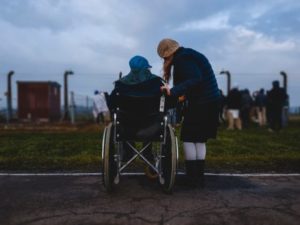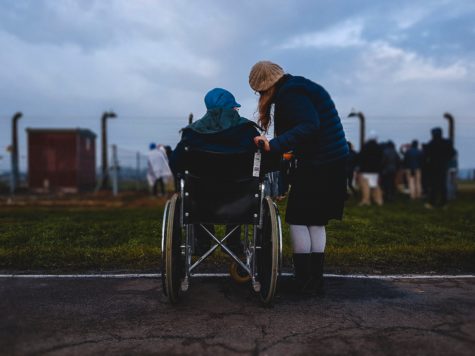RAMAT-GAN, Israel — Holocaust survivors endured extreme suffering and mental anguish. Does this explain why some of them have experienced higher cancer rates? And does this serve as a health alert for other populations undergoing extreme conditions and deprivation?
Researchers at Chaim Sheba Medical Center wanted to know how the hardships Holocaust survivors experienced impacted their risk of developing cancer.

“Such inspection cannot be conducted by experimental studies,” explains study co-author Dr. Siegal Sadetzki in a press release, “and could only be evaluated by using observational epidemiological surveys.”
Researchers knew that Holocaust survivors were exposed to many possible risk factors that have been associated with cancer: starvation, overcrowding, contagious diseases and extreme psychological stress.
They pored over data that was collected for more than 45 years. The authors found a modest but consistently elevated cancer risk among the records of 152,622 Holocaust survivors. The findings show a relationship between severe mass suffering and the health of survivors.
For their study, the researchers created two different carcinogenic exposure levels. They based one of these on a survivor’s lawful entitlement for compensation. The other considered the survivor’s country of origin, classifying countries by whether they were Nazi-occupied or non-occupied.
Twenty-two percent of individuals who received compensation for their suffering during the war were diagnosed with cancer, compared to 16 percent of those who were not compensated.
And while the overall rate for any type of cancer was six percent higher for compensated survivors, the rate was even higher for specific cancers for the compensated group. Colorectal cancer rates were 12 percent higher and lung cancer rates were 37 percent higher.
Researchers determined that survivors who were born in occupied countries were eight percent more likely than those born in non-occupied countries to develop any type of cancer.
For specific cancers, Holocaust survivors born in occupied countries were eight percent more likely to develop colorectal cancer and 12 percent more likely to develop lung cancer. Researchers found no increases in breast or gynecological cancers in women.
“The data emphasize the importance of learning about the combined effect of several exposures occurring intensely and contemporaneously on cancer risk, such as those that unfortunately occurred during World War II,” says Sadetzki.
Researchers say the relationship between the horrible conditions endured by Holocaust survivors and the development of cancer may also extend to other catastrophic circumstances, such as situations where racial or ethnic minorities are forced to endure extreme long-term suffering.
The study’s findings were published in July 2017 in Cancer, a peer-reviewed journal of the American Cancer Society.
